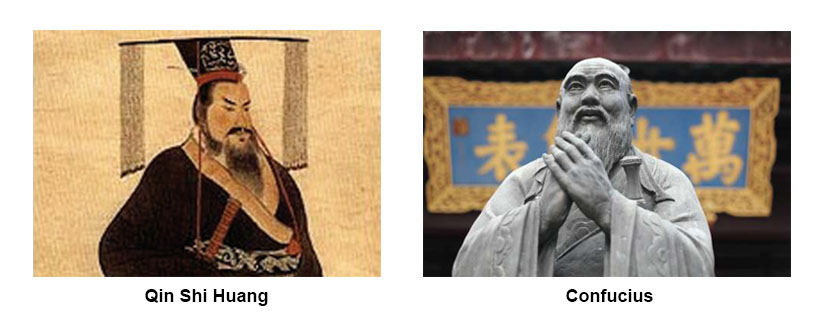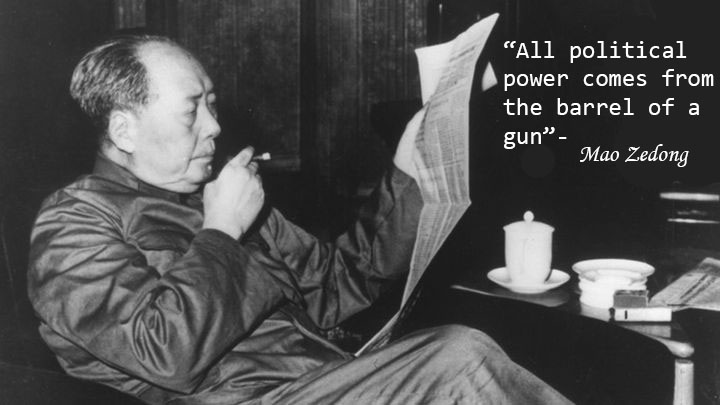How a country which was drowning in drugs a few decades back is now on the verge of becoming world largest economy? How it achieved the biggest and fastest industrial revolution in history that took place in just 40 years. In this article today, I will try to explain what really makes China work. By examining its past, it’s present, and by peeking in possible futures we will identify China’s success factors.
History
More than 2000 years ago there was no China, just a chaotic land of competing warlords. One military power overtook another, and none able to govern it effectively as a country. But by 221 BC one kingdom emerged to create order out of this ciaos. Qin Shi Huang was the first emperor of China and also the first person to find a way to hold 2 million miles together. He did this through autocracy. Total power and control in his hands.
For anyone trying to understand how modern China works, you have to start with this man. It was he who came up with the autocratic style of rule that still operates today. Everything that he did was designed to hold together his great empire. He ruthlessly removed opponents and tolerated no threat, no matter how small to his own monopoly of power. He had some 460 scholars buried alive for having different ideology to his. This extraordinary concentration of power in just one person’s hand enabled Qin to do astonishing things like building of Great Wall of China, that too to protect his empire from nomadic invaders from central Asia.
Today of course it’s the communist party and not an emperor that holds China together. It appears as if its government is elected by people but in reality however they way China is governed today is very similar to the way it was under its first emperor. All the power lies in the hands of few men who are unelected and as powerful as Emperor Qin.
Autocracy that values order over choice, secrecy over openness, and unity over democracy. That’s always been the Chinese way. But how on earth you get such system to survive for over 2000 years? While in other countries there are revolts against such governments, why do Chinese, who are also so many in numbers, submit to such autocratic rule? Part of the answer, again lies deep in the China’s past.
The way Chinese people think is highly influenced by the teaching of an ancient philosopher Confucius. You really can’t understand China, if you don’t understand the impact of Confucius’s teaching on its history. He provided the value system which is the very foundation of Chinese civilisation. His ideal was that of a society that puts social harmony above individual freedom. This system has long been used to justify the autocratic rule in China.
Young children in China are educated in such a way to believe that nation’s progress always comes ahead of individual freedom. National interest always have priority of personal interests even if that mean you have to give up your rights and be obedient to the same government which killed your loved ones. This belief system is very different from west where you are told to fight for your rights.
Post independence
After gaining independence in 1949, Peoples Republic of China had no government system and its country men were reduced into poverty. Living standards were lowest in 2000 years. Mao Zedong, then chairman of Communist party, had to do something to hold China together in such a way that it never fell apart again. To do this he followed the footsteps of first emperor. By introducing autocracy he gave complete power to his party.

Communist party is the only prominent political party of China and has been in power ever since independence. Their influence is so great that it reaches into the every corner of people’s lives. The party decided where you lived, what you wore, what you ate, what you read, and what you thought. And in every towns and villages, there was a party member keeping an eye on them. There are a total of around 90 million party workers spread across China; this number is more than the combined population of Australia and Canada. These workers are sent down to enforce party policy.
What Mao has done was to develop a political system so powerful, that could it unleash a force capable to transform China. In process he killed 45 million people. That’s more people than what Hitler of Germany and Stalin of Russia combine killed. On being compared to Qin the first emperor, Mao said: he buried 460 scholars alive we have buried 46,000. Thus we have surpassed Qin by a hundred fold. Mao was an icon of China’s 2000 years old tradition of autocracy. The rule of one man!
But still people in China worship Mao. They believe that Mao’s time was 30% bad and 70% good. As per capita income had doubled when Mao died as compare to when he came to power and life expectancy increased by 25 years. Especially, they credit him for developing a system that has brought so much success to China.
In early sixties, to criticise government was consider as a crime and people were imprisoned for it. And even to think of starting a business meant being an enemy to the government. But in Deng Xiaoping (successor to Mao) rule, privatisation was allowed. And this was when China’s economy rocketed. And made China what it is today. Special economic zones attracted foreign investment. Low taxes, free trade with the cheapest labour in the world. More than 300 million people gave up being peasant farmers and became factory workers. And tons of entrepreneur talent was unlashes as entrepreneurship was legalised. Deng Xiaoping economic revolution was spectacular as it took economy of China from nowhere to 2nd largest in the world. But all this was very closely watched by the government. Even multi billionaires were not allowed to do business until they signed a deal with the Communist part. The party’s takeover is complete.
Conclusion
China’s path to economic success was different from USA. It was the extremely innovative businesses that derived USA’s economy and it was the extremely powerful government that guided China’s success. But can this powerful government be a threat to the rest of the world? Read my next article "Is China the new Britian?" to get an insight of how it would be to live under the Chinese rule.